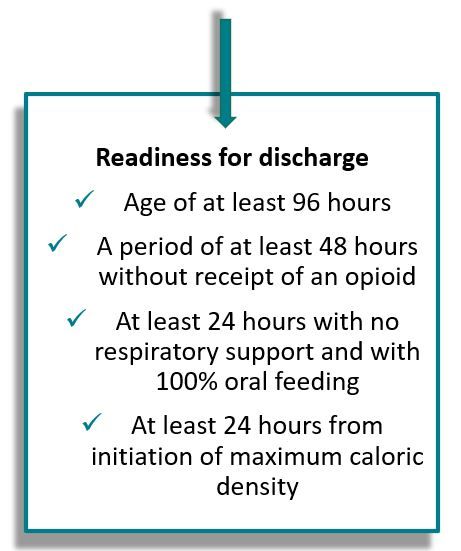- Clinical Technology
- Adult Immunization
- Hepatology
- Pediatric Immunization
- Screening
- Psychiatry
- Allergy
- Women's Health
- Cardiology
- Pediatrics
- Dermatology
- Endocrinology
- Pain Management
- Gastroenterology
- Infectious Disease
- Obesity Medicine
- Rheumatology
- Nephrology
- Neurology
- Pulmonology
"Eat, Sleep, Console" Reduces Hospital Stay, Medication Use in Opioid-exposed Neonates
Infants born with neonatal opioid withdrawal syndrome (NOWS) cared for with the “Eat, Sleep, Console” (ESC) approach were 63% less likely to receive medication as part of treatment compared to neonates who received standard of care, according to findings published on April 30 in the New England Journal of Medicine.
Further, the newborns who received ESC care were ready for discharge from the hospital approximately 6.7 days earlier than those who received standard care.
©yepifanovahelen/Adobe Stock

The study, part of the Advancing Clinical Trials in Neonatal Opioid Withdrawal (ACT NOW) Collaborative, included 1305 newborns at 26 US hospitals including those in rural and medically underserved communities that have been affected disproportionately by the opioid crisis, said study authors.
Opioid exposure in utero can lead to a range of withdrawal symptoms after birth including tremors, excessive crying and irritability, problems with sleeping and feeding, and seizures, wrote first author Leslie W Young, MD, a neonatologist and associate professor of pediatrics at the University of Vermont’s Larner College of Medicine, and colleagues. These neonates require close monitoring and individual care that frequently prolong hospitalization.
The Finnegan tool. The traditional approach to assessment and management of NOWS relies on the Finnegan Neonatal Abstinence Scoring Tool (FNAST), an extensive, observer-rated scoring system used, in part, to determine pharmacologic treatment for NOWS, explained study authors. Despite concerns raised about the tool’s subjectivity and its overestimation of the need for opioid medications, use persists in the absence of an evidence-based alternative.
Eat, Sleep, Console. In contrast to FNAST, ESC relies on a function-based assessment of withdrawal severity that is focused on an infant’s ability to eat, sleep, and be consoled. The approach prioritizes keeping mother and infant together, supporting families in playing a larger role in care of the infant, and includes nondrug interventions such as reduced stimulation, skin-to-skin contact, and breast-feeding.
The approach has become widely popular but without evidence for its efficacy, there are concerns for medical undertreatment of infants affected by NOWS or premature hospital discharge. The goal of the Eating, Sleeping, Consoling for Neonatal Opioid Withdrawal (ESC-NOW) trial was to evaluate the safety, efficacy, and generalizability of ESC compared with usual care using the FNAST tool.

For the cluster-randomized, controlled trial, investigators enrolled infants with NOWS born at ≥36 weeks’ gestation at 26 sites described in the study as geographically diverse, including both academic centers and community hospitals. In randomly assigned order, hospitals transitioned from care for infants with NOWS that used the Finnegan tool to care directed by the ESC approach. Staff was trained on the use of the new approach during a 3-month transition period during which no infants were enrolled.
For the primary outcome, Young et al identified time from birth until the infant was medically ready for discharge, per trial protocol (Figure). Key secondary outcomes included the receipt of pharmacologic treatment and hospital length of stay. Composite safety outcomes also were assessed during the infants’ first 3 postnatal months.
Investigators enrolled 1305 infants between September 2020 and March 2022. Baseline characteristics between the usual care group (n= 702) and ESC group (n-603) were similar.
FINDINGS
Of the 1305 infants enrolled, 837 (64%) met the trial definition of readiness for discharge. In an intention-to-treat analysis of these infants, the number of days from birth until readiness for hospital discharge was 8.2 in the ESC group and 14.9 in the usual-care group (adjusted mean difference, 6.7 days; 95% CI, 4.7 to 8.8), for a rate ratio of 0.55 (95% CI, 0.46 to 0.65; P<.001). The effect of ESC was consistent during the trial, according to the study, despite some heterogeneity across treatment sites.
Mean length of hospital stay was shorter for infants treated with ESC than for those treated using the Finnegan tool at 7.8 days vs 14.0 days (mean difference, 6.2 days; 95% CI, 4.6 to 7.7; rate ratio, 0.56; 95% CI, 0.49 to 0.64).
There was a very significant difference between the 2 groups in use of opioids: 52% in the usual care group vs 19.5% in the ESC group (absolute difference, 32.5 percentage points; relative risk, 0.38; 95% CI, 0.30 to 0.47). With regard to infant safety the researchers report that the composite measurement through age 3 months was similar between the 2 groups as was the composite critical safety outcome at discharge and 3 months.
“The observed treatment effect for this trial, which was greater than hypothesized, supports the generalizability of the Eat, Sleep, Console approach across diverse sites and varied populations, including those not previously represented in the literature,” wrote authors in conclusion.
“Although heterogeneity in treatment effect was anticipated, given the variation known to exist across hospitals, further study of potential contributors (eg, site variation in population, location of care, and use of nonpharmacologic interventions as part of usual care) is warranted and will further inform the use of this care approach.”
Reference: Young LW. Ounpraseuth ST, Merhar SL, et al for the ACT NOW Collaborative. Eat, sleep, console approach or usual care for neonata; opioid withdrawal. N Engl J Med. Published online April 31, 2023. doi:10.1056/NEJMoa2214470
